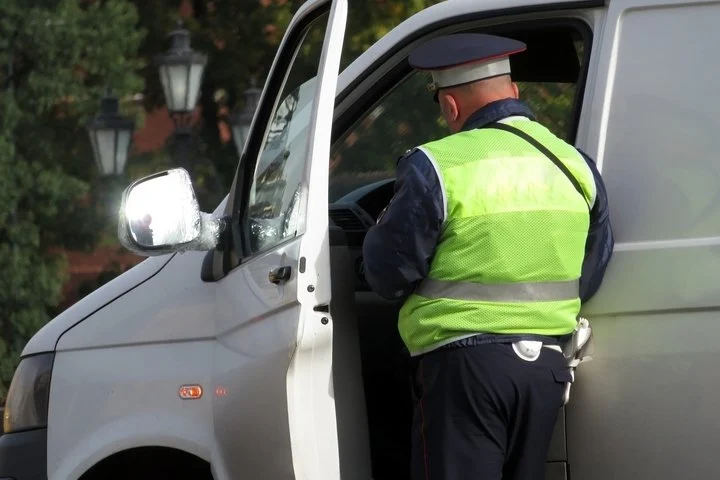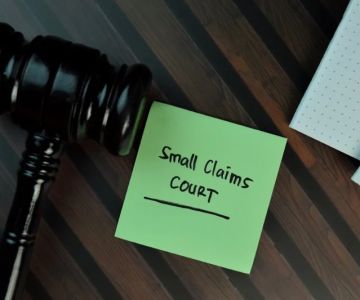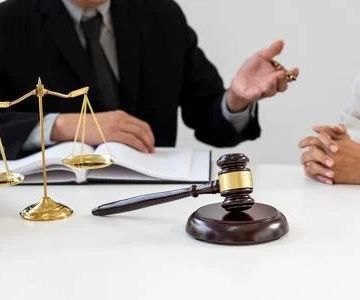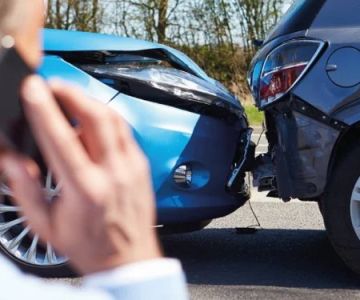
- 1. What Are Your Rights During a Police Stop?
- 2. What to Do During a Police Stop
- 3. Understanding Police Authority During a Stop
- 4. Know Your Limitations: When to Comply
- 5. Handling Police Encounters: Staying Safe
1. What Are Your Rights During a Police Stop?
When you are stopped by law enforcement, it's essential to know your rights. These rights are designed to protect you and ensure the interaction is lawful. Understanding these rights can help you respond appropriately and safeguard your personal freedom.
1.1 Right to Remain Silent
You have the right to remain silent during a police stop. If you are not under arrest, you are not required to answer questions posed by the officer. This right helps prevent self-incrimination and allows you to avoid saying anything that could be used against you later.

Burnett Injury Group
AnnapolisAnne Arundel CountyMaryland
2661 Riva Rd Building 1000, Suite 1010, Annapolis, MD 21401, USA
1.2 Right to Refuse a Search
Unless the police have a warrant or probable cause, you have the right to refuse a search of your person or vehicle. You should clearly state, "I do not consent to a search," if an officer asks for permission to search your belongings.
1.3 Right to an Attorney
If you are arrested during a police stop, you have the right to an attorney. You can request legal representation before answering any questions or making statements.
2. What to Do During a Police Stop
Knowing how to behave during a police stop is just as important as understanding your rights. Follow these steps to ensure the encounter is as smooth as possible:
2.1 Stay Calm and Polite
Remain calm and respectful, even if you feel the stop is unfair. Do not argue with the officer. While you have the right to challenge the stop later in court, it is best to remain courteous during the interaction.
2.2 Provide Your Identification
If asked, you must provide your name, address, and identification. In some states, you are also required to provide a driver’s license and vehicle registration if stopped while driving. Refusing to provide this information could result in arrest or other penalties.
2.3 Do Not Resist Arrest
If you are arrested during the stop, do not resist. You have the right to challenge the arrest later in court, but physically resisting can lead to additional charges and escalate the situation unnecessarily.
3. Understanding Police Authority During a Stop
It’s important to understand the limits of police authority during a stop. While officers have the right to stop and question you, they cannot detain you indefinitely without a valid reason. Here's what you need to know about police authority during an encounter:
3.1 Reasonable Suspicion vs. Probable Cause
Officers can stop you if they have reasonable suspicion that you've committed a crime or are about to commit one. However, if they want to search your vehicle or arrest you, they need probable cause. If they lack both reasonable suspicion and probable cause, the stop may be unlawful.
3.2 What Happens After the Stop?
If you are not arrested, you are free to go after the stop. However, if the officer has reasonable suspicion or probable cause, they can detain you further or arrest you. It’s crucial to understand the officer's reasons for detaining or arresting you, as you have the right to know why you're being held.
4. Know Your Limitations: When to Comply
While it’s important to assert your rights during a police stop, you must also understand when to comply with certain requests:
4.1 Comply with Safety Measures
In situations where an officer asks you to remain in your vehicle or step out of your car, do so politely. Officers may ask these things for safety reasons, even if they do not have probable cause. Compliance can avoid escalation during the stop.
4.2 Comply with Requests for Identification
If the officer requests identification, you are generally required to comply. In many cases, refusing to provide ID can result in arrest. Always check your local laws to determine what information you are required to provide during a stop.
5. Handling Police Encounters: Staying Safe
During any police encounter, it’s essential to protect yourself and avoid escalation. Here are some tips for staying safe:
5.1 Stay in a Safe Location
If you're stopped while driving, remain in your car until the officer asks you to step out. If you're on foot, stay in an area where there is no threat of danger. Avoid sudden movements that could be misinterpreted as aggressive behavior.
5.2 Record the Encounter
If you feel the stop is unlawful or are concerned about your safety, it's within your rights to record the encounter, as long as you do so from a safe distance. Recording can help protect both you and the officer, ensuring transparency in the interaction.
5.3 Know When to Seek Legal Help
If you feel your rights were violated during a police stop, it’s important to consult with an attorney. A legal professional can help assess whether the stop was unlawful and advise on the next steps to take.
Understanding your rights during a police stop can help protect your personal freedom and safety. Remember, staying calm and compliant, while asserting your rights, is key to handling the situation effectively.








 Kuranty John2.0 (5 reviews)
Kuranty John2.0 (5 reviews) Scott H. Thomas0.0 (0 reviews)
Scott H. Thomas0.0 (0 reviews) H Taufiq Choudhury PC0.0 (0 reviews)
H Taufiq Choudhury PC0.0 (0 reviews) Kraut Law Group Criminal & DUI Lawyers5.0 (21 reviews)
Kraut Law Group Criminal & DUI Lawyers5.0 (21 reviews) Randy Fisher Law5.0 (4 reviews)
Randy Fisher Law5.0 (4 reviews) Formica Law Group | Injury & Accident Lawyers5.0 (15 reviews)
Formica Law Group | Injury & Accident Lawyers5.0 (15 reviews) How to Avoid Common Legal Mistakes When Buying a Home – Expert Advice
How to Avoid Common Legal Mistakes When Buying a Home – Expert Advice Law Made Simple: Understanding Child Custody Laws in Simple Terms
Law Made Simple: Understanding Child Custody Laws in Simple Terms How to Expunge a Criminal Record – A Complete Guide
How to Expunge a Criminal Record – A Complete Guide How to Choose the Right Lawyer for Your Case – Expert Legal Advice
How to Choose the Right Lawyer for Your Case – Expert Legal Advice Your Rights During a Police Stop – Expert Legal Advice for Citizens
Your Rights During a Police Stop – Expert Legal Advice for Citizens A Step-by-Step Guide to Writing a Will – Expert Legal Advice
A Step-by-Step Guide to Writing a Will – Expert Legal Advice